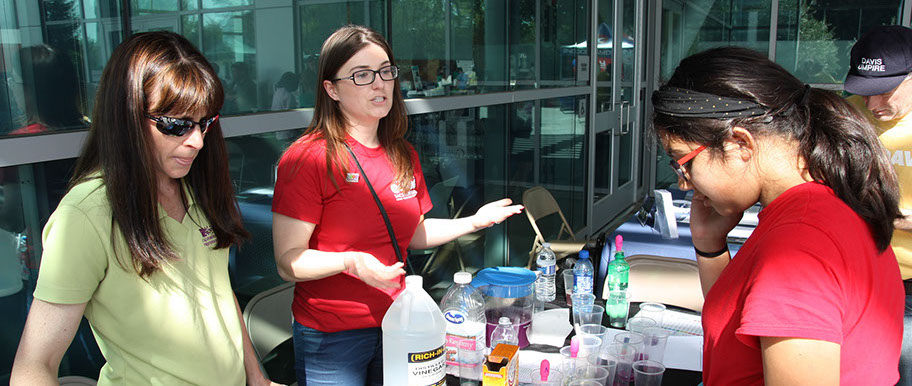Teachers & Coordinators
Here’s how you can get your students and school involved in the next Science Fair!
Why You Should Participate?
You are molding the Scientists, Technicians, Engineers and Mathematicians of tomorrow! Encouraging your students to participate in our Fair can not only fit well into your curriculum for the year, but will also satisfy the Next Generation Science Standards!
NGSS focuses on hands-on, student-driven, inquiry-based project learning that involves cross-curricular collaboration among teachers and peer-to-peer learning opportunities for students. Guiding students through a Science, Technology, Engineering, or Math (STEM) project can be one way of meeting the diverse requirements of NGSS.
Students’ participation in our regional fair is an opportunity for collaboration across curriculum. For example, a science project needs graphs (math teacher), a good abstract (english teacher) and of course, the science behind it (science teacher)!
01
Develop & Register
After your students have developed their research plans, have them register online. Your students can choose to compete or showcase their project.
02
Begin Experiment
Once Registration is submitted, students can begin experimentation and put together their project boards.
03
Check your Email
Project Registrations are considered completed unless the students are contacted for additional information
Course Duration
Lorem ipsum dolor sit amet, consectet adipisicing elit, sed
Entry Requirements
Lorem ipsum dolor sit amet, consectet adipisicing elit, sed
Course Audience
Lorem ipsum dolor sit amet, consectet adipisicing elit, sed
Schedule Options
Lorem ipsum dolor sit amet, consectet adipisicing elit, sed
Enrollment & Tuition
Lorem ipsum dolor sit amet, consectet adipisicing elit, sed
Degree Awarded
Lorem ipsum dolor sit amet, consectet adipisicing elit, sed
We understand that sometimes in order to get excited over a new topic, students need a change in scenery. This is why we would like to present our “Request for a Classroom Presenter” form.
Please fill out the form to request that we contact you and we will organize a presentation in your classroom to help your students with the beginning phases of their STEM projects and how to participate in our Fair.
Request a Presentation
Helful Websites for you and your classrom!
1
Sparticl – A new web and mobile service for teens that collects the best Internet resources in STEM.
2
The National Science Digital Library – An on-line library for those interested in education and research in science, technology, engineering, and mathematics.
3
eGFI – Tools to boost your students’ math and science skills, enliven the classroom with engineering projects, lesson plans and activities and demonstrations.
4
Find your Path Through NGSS – Choose different STEM topics and cross cutting areas to see different activities and lesson plans!
5
6
Science News for Students! Pretty self-explanatory, but this news site can help you see what real world problem professional scientists and engineers are tackling – maybe you have a better solution?
Timeline of Events!
Project Registration Opens
June
Project registration is open. Sign up online and begin brainstorming.
Identify your topic & research it.
August-September
Think of a topic that interests you or that is relevant to you and develop a question or a solution to a problem Remember: STEM is in everything! For example, if you love art, you could research how the chemicals in paint react or how they make the artificial colors.
Begin researching your topic. Be sure to record and cite your sources
Keep a notebook to record notes throughout your project, including references for your bibliography, observations, measurements, sketches and diagrams. Narrow down your topic to one that you can experiement with.
By late September, you should have completed your initial research, identify your topic and conduct specific research on your topic.
Plan & prepare for your experiment
October-November
Plan for your experiment! Draft out what steps you will take in your experimentation and make a list of what materials you will need.
Purchase the materials for your experiment – make sure to have enough for a few trials! Be sure to list out your safety procedures as well because you will need it for your STEM Fair registration. Make a hypothesis and record it!
After you’ve come this far, go online and fill out your Project Registration. Be sure to keep an eye out on your email – this is how we will contact you if we have any questions to inform you if we are missing anything.
*BEFORE EXPERIMENTATION*
Project Registration
Complete your Project Registration online or submit a paper copy. You MUST submit your paperwork PRIOR to experimentation. If you do not have the paperwork in before you begin your experiment, you may be disqualified from winning awards and prizes. We suggest submitting your paperwork in NOVEMBER so that you can get it out of the way and off your plate.
Experiment
December-January
Perform the procedures you developed in October and November. Record all observations and data in detail in your notebook. When you are experimenting be sure to collect both quantitative (numbers and measurements) and qualitative data (descriptive observations).
We suggest you videotape and photograph your experimentation. This way if you have materials that are not alloqed at your project display during the Fair, you are still able to showcase the work you performed.
Analyze your data and draw conclusions. This is where you reflect on what happened during experimentation – what did you observe? What does it mean in the real world? Would this work affect other areas of the world?
Create your project board & display
January-February
Before you begin and display world, make sure to review the Items Not Allowed at Your Display list and the display guidelines. Make sure that your display board fits in the dimensions provided because you will be limited to those guidelines.
Prepare your 2-3 minute presentation. Take a look at our “Project Tips/Interview” section on the Student & Parents page. Remember: your judges will be scientists and engineers; you do not have to explain every tiny detail to them.
Deadline for Project Registration
February
This is the FINAL DEADLINE for Project Registration. There will be NO extensions. If you submit your project registration after this date, you will not be eligible to compete.
Finalize Project! It's Fair Time!
March
Make sure to review the online information packets that are posted close to the date of the Fair. These contain information pertaining to timing, parking, student check-in, activities for the day and more!
Finalize Project Drop-Off!
March/April (Date TBD)
Student Project Check-in and Drop-off will be held on site from 5pm-8pm. Stop by tonight to make your event day SUPER easy!

